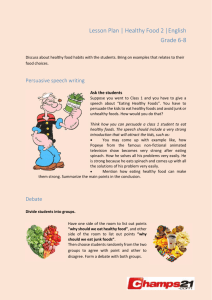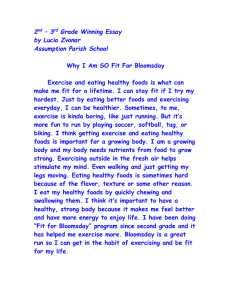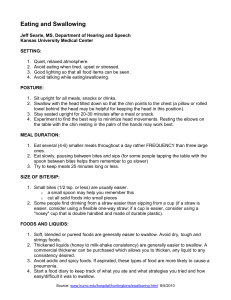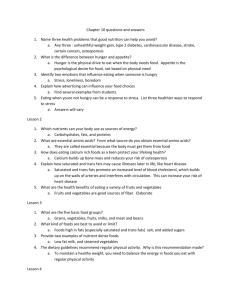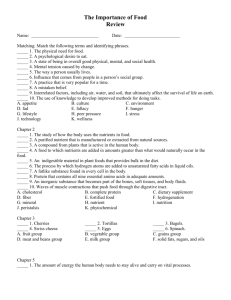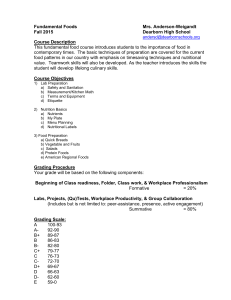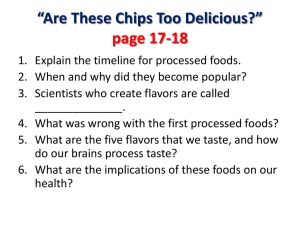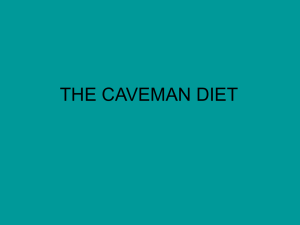Appetite Nutrition
advertisement
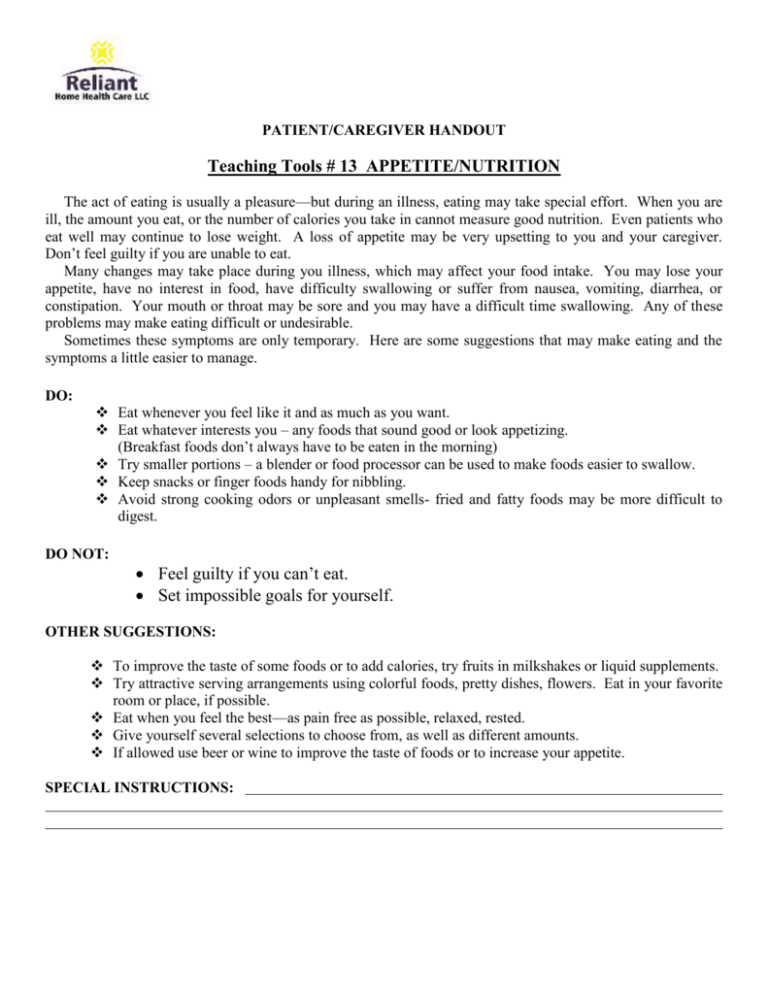
PATIENT/CAREGIVER HANDOUT Teaching Tools # 13 APPETITE/NUTRITION The act of eating is usually a pleasure—but during an illness, eating may take special effort. When you are ill, the amount you eat, or the number of calories you take in cannot measure good nutrition. Even patients who eat well may continue to lose weight. A loss of appetite may be very upsetting to you and your caregiver. Don’t feel guilty if you are unable to eat. Many changes may take place during you illness, which may affect your food intake. You may lose your appetite, have no interest in food, have difficulty swallowing or suffer from nausea, vomiting, diarrhea, or constipation. Your mouth or throat may be sore and you may have a difficult time swallowing. Any of these problems may make eating difficult or undesirable. Sometimes these symptoms are only temporary. Here are some suggestions that may make eating and the symptoms a little easier to manage. DO: Eat whenever you feel like it and as much as you want. Eat whatever interests you – any foods that sound good or look appetizing. (Breakfast foods don’t always have to be eaten in the morning) Try smaller portions – a blender or food processor can be used to make foods easier to swallow. Keep snacks or finger foods handy for nibbling. Avoid strong cooking odors or unpleasant smells- fried and fatty foods may be more difficult to digest. DO NOT: Feel guilty if you can’t eat. Set impossible goals for yourself. OTHER SUGGESTIONS: To improve the taste of some foods or to add calories, try fruits in milkshakes or liquid supplements. Try attractive serving arrangements using colorful foods, pretty dishes, flowers. Eat in your favorite room or place, if possible. Eat when you feel the best—as pain free as possible, relaxed, rested. Give yourself several selections to choose from, as well as different amounts. If allowed use beer or wine to improve the taste of foods or to increase your appetite. SPECIAL INSTRUCTIONS:


